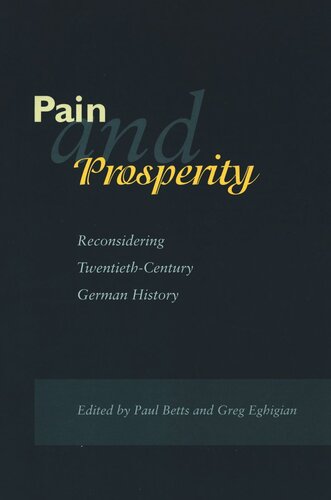

Most ebook files are in PDF format, so you can easily read them using various software such as Foxit Reader or directly on the Google Chrome browser.
Some ebook files are released by publishers in other formats such as .awz, .mobi, .epub, .fb2, etc. You may need to install specific software to read these formats on mobile/PC, such as Calibre.
Please read the tutorial at this link: https://ebookbell.com/faq
We offer FREE conversion to the popular formats you request; however, this may take some time. Therefore, right after payment, please email us, and we will try to provide the service as quickly as possible.
For some exceptional file formats or broken links (if any), please refrain from opening any disputes. Instead, email us first, and we will try to assist within a maximum of 6 hours.
EbookBell Team

4.1
80 reviewsThe turn of the millennium has stimulated much scholarly reflection on the historical significance of the twentieth century as a whole. Explaining the century’s dual legacy of progress and prosperity on one hand, and of world war, genocide, and mass destruction on the other, has become a key task for academics and policymakers alike. Not surprisingly, Germany holds a prominent position in the discussion. What does it mean for a society to be so closely identified with both inflicting and withstanding enormous suffering, as well as with promoting and enjoying unprecedented affluence? What did Germany’s experiences of misery and abundance, fear and security, destruction and reconstruction, trauma and rehabilitation have to do with one another? How has Germany been imagined and experienced as a country uniquely stamped by pain and prosperity? The contributors to this book engage these questions by reconsidering Germany’s recent past according to the themes of pain and prosperity, focusing on such topics as welfare policy, urban history, childbirth, medicine, racism, political ideology, consumerism, and nostalgia.